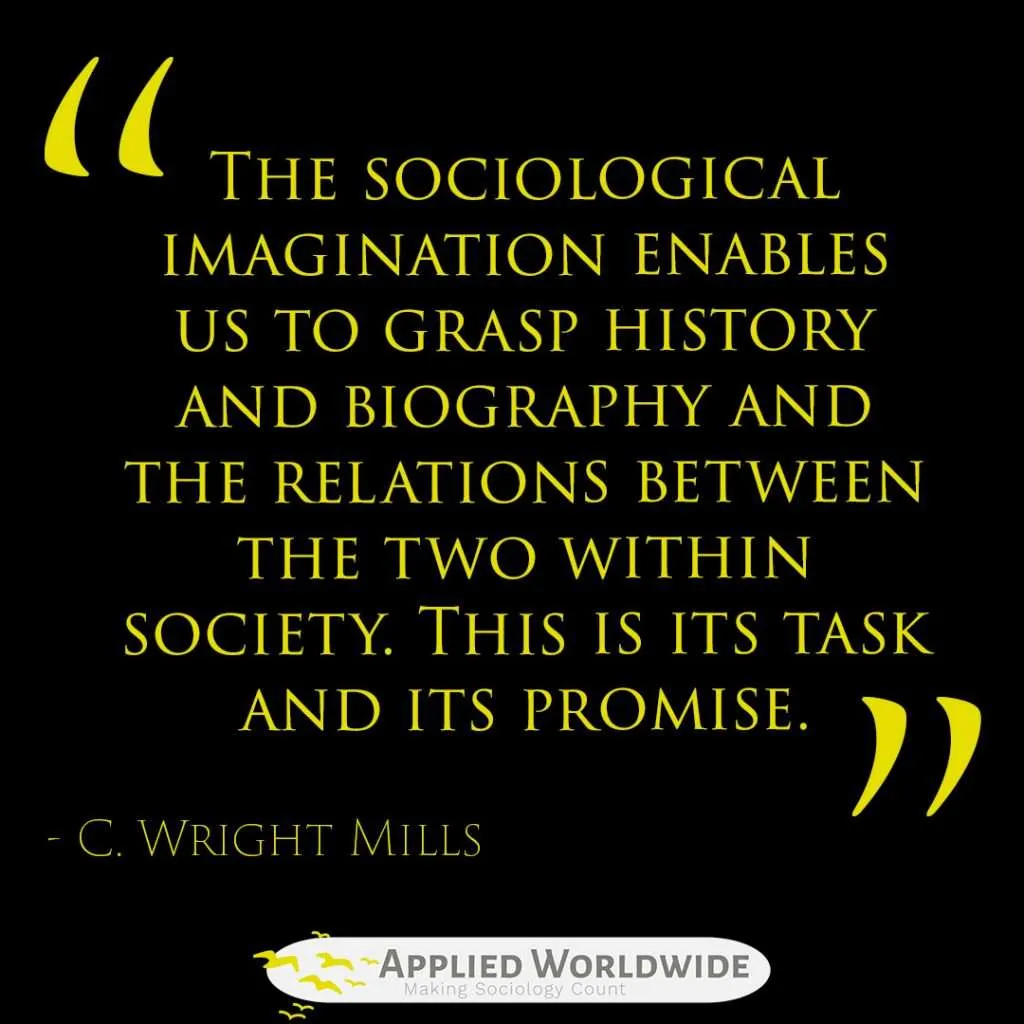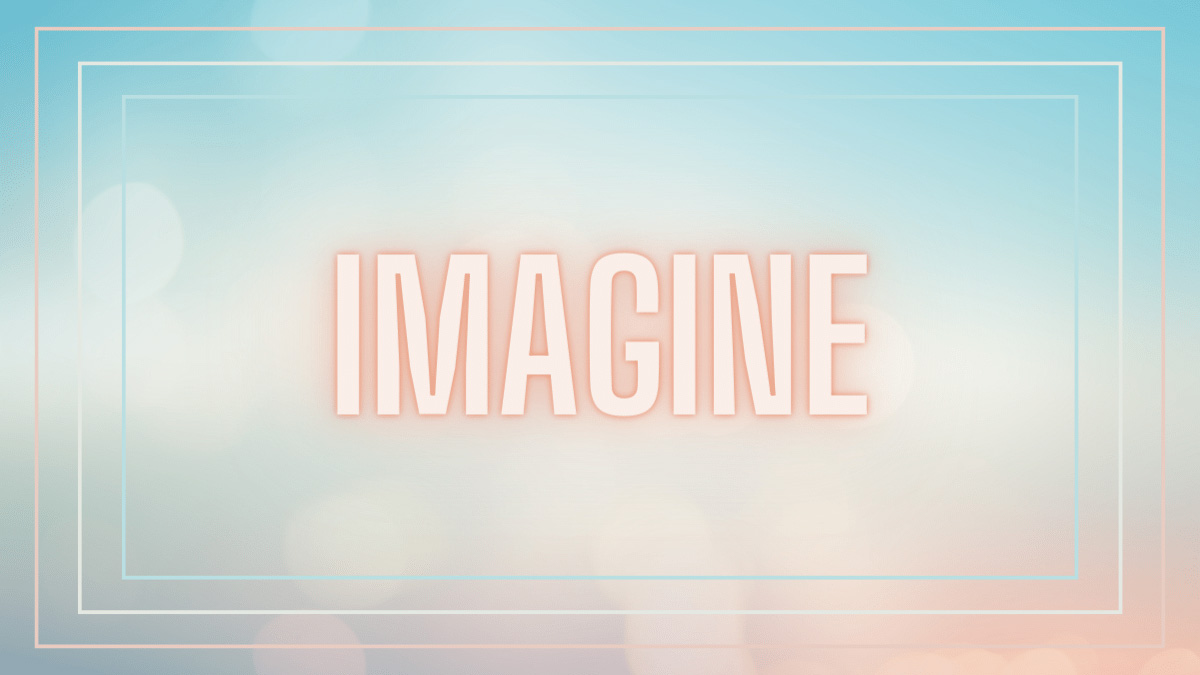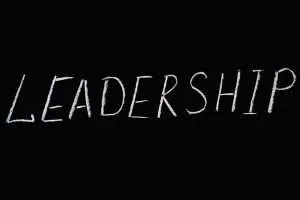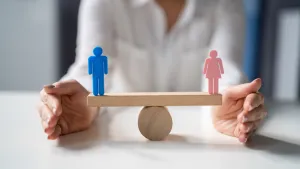What is the Sociological Imagination?
The sociological imagination is a term that was coined by American sociologist C. Wright Mills in 1959. It refers to the ability to see and understand the connections between individual experiences and larger societal forces. In other words, the sociological imagination enables individuals to see the social and cultural context in which they live as well as understand how that context shapes their lives and experiences.
The sociological imagination is an important concept beyond sociology because it helps individuals to understand the ways in which social structures and institutions influence their lives and the lives of others. It also helps individuals recognize the broader patterns and trends that shape society. In doing so, the sociological imagination helps people understand how these patterns and trends impact groups differentially, leading to inequality in various formats.

Three Key Components of the Sociological Imagination
According to Mills, the sociological imagination has three key components:
- Historical Context,
- Social Structure, and
- Personal Biography.
Historical Context
In the case of the sociological imagination, historical context refers to the historical and cultural context in which individuals live. Understanding the historical context is important for understanding how social and cultural forces have shaped society and individuals over time. One prominent example is the historical context of colonialism and slavery across the globe. The way this historical context has shaped race relations globally cannot be overlooked. The sociological imagination forces us, necessarily, to understand the importance of historical context in shaping modern day life.
Social Structure
Social structure refers to the ways society is organized, including social institutions such as government, the economy, education, and religion. Social structure shapes individuals’ experiences and opportunities in society. One common example in sociology is gender. While we often think about gender at the micro-level as an identity, much like a person’s full name (e.g., Cicely Johnson), it is also a social structure that shapes our world in countless ways. For instance, think about the division of household labor and how it is structured by gender. As a different example, we can think about clothing stores and how such spaces are organized by gender.
Personal Biography
Personal Biography, in relation to the sociological imagination, refers to the individual experiences and life events that shape a person’s life course. Understanding personal biography in the context of historical context and social structure helps individuals see how their lives are influenced by larger societal forces. While we all have individual agency in our lives, that agency is constantly in negotiation with historical context and social structure. In other words, the choices we make as individuals are not made in a vacuum and are highly influenced by our social environment and the historical context within which it exists.
Examples of the Sociological Imagination in Action
By understanding historical context, social structure, and personal biography together, we can all better understand each other and the social world we inhabit together. Let us consider the following examples:
The Sociological Imagination of Unemployment
Rather than seeing unemployment as a personal failure or lack of motivation, the sociological imagination helps individuals to see unemployment as a result of broader economic and social factors such as technological advancements, globalization, and government policies. Without the sociological imagination, it is easy to blame individuals for personal troubles, such as unemployment. But, the reality is that such personal issues are rooted in both historical context and social structure.
The problem of unemployment is a larger trend than any one individual person, showing how everyone’s personal biography is connected through larger social forces that shape the lives and experiences of individuals.
Read: The Sociological Imagination of Unemployment
The Sociological Imagination of Gender Inequality
Rather than seeing gender inequality as a natural or inevitable part of society, the sociological imagination helps individuals understand how gender roles and expectations are shaped by social and cultural forces. Once we can see how social and cultural forces shape gender roles, we can better understand how these forces perpetuate inequality. It is impossible to fully grasp the reality of gender inequality in the modern world without also understanding the history of patriarchal societies.
While many of us may not live in a fully-blown patriarchal society today, our cultural practices and social roles are shaped by the history of those societies, bringing with them gendered expectations that often favor certain groups (e.g., men and cisgender people) over others (e.g., women and trans folx).
The Sociological Imagination of Health Disparities
Rather than seeing health disparities as a result of individual choices or behaviors, the sociological imagination helps individuals to recognize the ways in which social and economic factors such as poverty, education, and access to healthcare contribute to health disparities. For instance, socioeconomic status (SES) is known by sociologists as a fundamental cause of health inequality. That means that we can predict health outcomes with decent accuracy based on a person’s SES.
Medical sociologists have discovered various explanations for why a person’s social class status has such a dire impact on their health, much of which has to do with access to resources. In the United States, for example, our SES impacts our access to health insurance. Our health insurance then impacts our access to the providers, treatments, and technologies for early detection of diseases, all of which are hugely impactful on health outcomes.
The Benefits of the Sociological Imagination
Whether applied to unemployment, gender inequality, health disparities, or yet another entirely different issue, developing a sociological imagination has endless benefits, some of which include:
- Greater awareness of the social and cultural forces that shape society and individuals.
- Increased ability to think critically about social issues and problems.
- Greater empathy and understanding of others’ experiences and perspectives.
- Increased ability to recognize and challenge social inequalities and injustices.
- Enhanced capacity for personal growth and self-reflection.
With so many benefits to both individuals and society as a whole, the sociological imagination should be a tool available to and utilized by everyone!
Conclusion
The sociological imagination is a key concept in sociology, helping individuals to see and understand the connections between individual experiences and larger societal and historical forces. By recognizing the connection between historical context, social structure, and personal biography of individuals, the sociological imagination enables individuals to develop a more nuanced and critical understanding of the world around them.
By developing a sociological imagination, individuals can better understand the complex social and cultural forces that shape their lives and the lives of others, and work toward creating a more just and equitable society for all.







